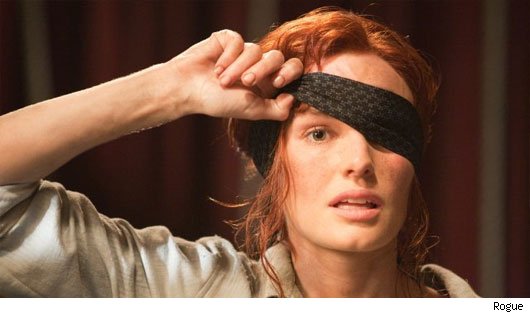[ by Charles Cameron — the excellence of today’s piece by Joshua Foust and the importance of intelligence that is not actionable, with illustrations from Zenpundit, Dickens and Shakespeare ]
.
**
Josh Foust just posted an important piece in his Atlantic column and on his American Security Project blog titled Myopia: How Counter-Terrorism Has Blinded Our Intelligence Community, with the subtitle:
The United States’ overriding interest in “actionable” information on terrorists has produced a dangerous form of tunnel vision.
Bingo.
This is important, and I’ll circle back to it. But first, please follow the full arc of the circle…
**
I post little headers at the top of all my Zenpundit posts these days, to let people know where on the irrelevance scale my latest offering should be placed — I guess the idea came from the 19th century practice of offering “synoptic chapter headings” to titillate the reader of novels, as when Mr Dickens titles one chapter of The Pickwick Papers:
Chapter XVIII. Briefly illustrative of two points; first, the power of hysterics, and, secondly, the force of circumstances
I digress.
Some while back, I posted a piece called The Haqqani come to high Dunsinane here on Zenpundit, and gave it the header:
why is non-actionable (useless) intelligence sometimes the most intelligent (useful)? – importance of multiple frames for complex vision
The piece was about the Haqqani network, but obliquely so — I was leaping from an image in a video where a cluster of Haqqani-guys in training were running around dressed as trees, to a similar image in Shakespeare‘s Macbeth:
Macbeth shall never vanquish’d be until
Great Birnam wood to high Dunsinane hill
Shall come against him.
Well, that was the prophecy, and Macbeth took it to mean he’d never be defeated in battle:
That will never be.
Who can impress the forest, bid the tree
Unfix his earthbound root? Sweet bodements! Good!
Prophecies and portents are notorious for their double meanings, however, and this one’s fulfillment comes when Malcolm gives the order to his men:
Let every soldier hew him down a bough
And bear’t before him. Thereby shall we shadow
The numbers of our host and make discovery
Err in report of us.
Heh — “discovery” here means what today we’d call “intelligence” — and notice the importance here of reading multiple meanings out of a single sign.
A while later, a messenger arrives, and declaims:
As I did stand my watch upon the hill,
I look’d toward Birnam, and anon, methought,
The wood began to move.
This turns out to be true enough, for in the next scene Malcolm, now before Dunsinane, gives the order:
Now near enough: your leafy screens throw down.
And show like those you are.
and:
Make all our trumpets speak; give them all breath,
Those clamorous harbingers of blood and death.
And so it goes.
**
Let me emphasize, this is not, definitively not, actionable intelligence that I am in any way attempting to offer as such to anyone engaging in close-quarters combat with the Haqqanis.
Our arc is almost complete at this point, so let’s take a closer look at Josh Foust’s piece:
Large areas of the IC have move away from their traditional role of analyzing a broad range of current events for policymakers and toward supporting the global counterterrorism mission. News stories about this shift suggest the counterterrorism mission has become the overarching concern of the national security staff.
This shift in focus can create blind spots that pose unique challenges for the president. If branch chiefs and the policymakers they support value “exploitable” information over deep understanding, they might be ignoring potentially vital information that doesn’t seem immediately of interest.
Imagine an analyst finding reports of a growing discontent in a Middle Eastern country’s politics; if that does not provide immediate benefit for a decision-making process for targeting suspected terrorists, it can easily be ignored in the avalanche of targeting information.
Blind spots, eh?
Those would be “the dots” in the “larger picture” that you can’t “connect” until it’s too late. And where are they found? In “information that doesn’t seem immediately of interest” — intelligence that’s not “actionable” in other words.
Or to put that another way, what Josh calls “tunnel vision” comes from staring at what’s “actionable” — whereas vision that’s “out of the tunnel” comes from noticing what’s in peripheral vision.
**
Wei wu wei? It’s a Taoist motto: literally, it means “action without action” though it can also be translated “effortless action”.
I know, I know, this is a useless post. But you know what Hui Tzu said to Chuang Tzu?
I have a big tree of the kind men call shu. Its trunk is too gnarled and bumpy to apply a measuring line to, its branches too bent and twisty to match up to a compass or square. You could stand it by the road and no carpenter would look at it twice. Your words, too, are big and useless, and so everyone alike spurns them!
And you know what Chuang Tzu said in response?



